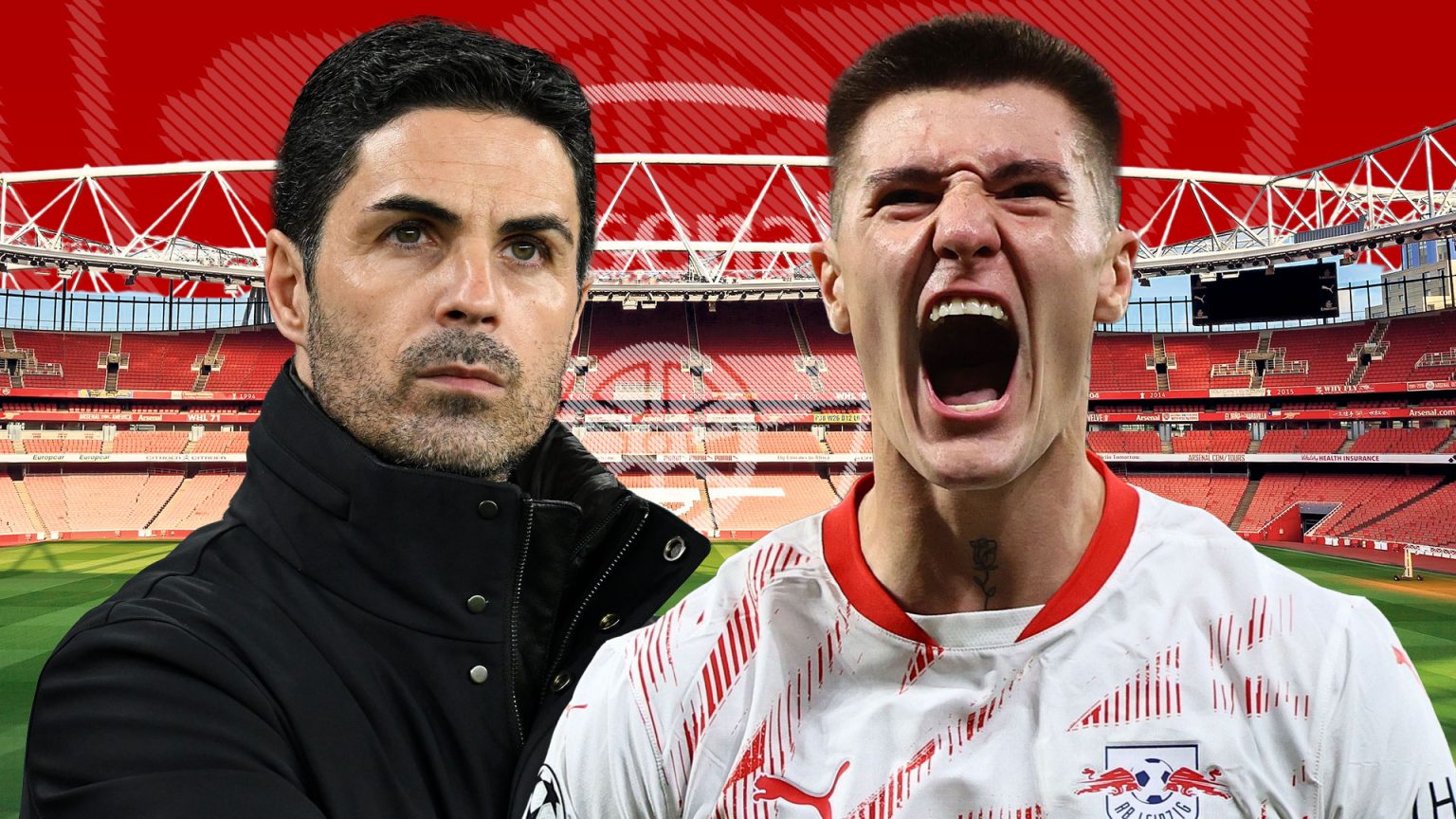Mikel Arteta, manager of Arsenal Football Club, is facing a crucial decision as the January transfer window nears its end. The Gunners are grappling with significant injuries to key attacking players, Bukayo Saka and Gabriel Jesus, leaving the squad thin in the forward positions. This scarcity of attacking options has prompted Arteta to actively explore the market for reinforcements. While the club has been linked with several prominent strikers, including Benjamin Sesko of Red Bull Leipzig, Alexander Isak, Dusan Vlahovic, and Matheus Cunha, no concrete deals have materialized. The urgency of the situation has been highlighted by players like Declan Rice, who publicly acknowledged the team’s need for attacking reinforcements.
Arteta’s approach to recruitment involves a unique element: consultation with his existing players. Recognizing the importance of team dynamics and the specific qualities required to thrive within the Arsenal system, Arteta actively seeks input from his squad. He believes that this firsthand perspective offers invaluable insights that go beyond statistical analysis and data-driven assessments. Arteta emphasizes the importance of understanding a player’s mentality, particularly their resilience during periods of poor form, their preferred playing style, and their adaptability to the physical demands of the Premier League. This collaborative approach ensures that potential signings are not only technically proficient but also possess the character and temperament to seamlessly integrate into the team.
While Arteta has the financial backing of Arsenal’s owners, Stan and Josh Kroenke, for January acquisitions, the club is carefully considering the long-term implications of any potential deals. The decision-makers are mindful of how January signings might impact their summer transfer plans and the overall balance of the squad. The existing loan deals for Neto and Raheem Sterling further complicate matters, as Premier League regulations restrict the number of domestic loans a club can have at any given time. While some have speculated about canceling one of these loans to create space for a new signing, Arteta has dismissed this possibility. The potential departures of defenders Jakub Kiwior and Oleksandr Zinchenko, the latter linked with Borussia Dortmund, could free up resources and squad space for a new striker, but these scenarios remain uncertain.
Arsenal’s pursuit of Benjamin Sesko highlights the complexities of the transfer market. While the young Slovenian striker is a highly-rated prospect and seemingly fits the profile of player Arteta is looking for, acquiring him from Red Bull Leipzig would likely require a substantial financial outlay. The club must weigh the immediate need for attacking reinforcements against the potential long-term benefits of securing a promising young talent. Furthermore, the availability of alternative targets, such as Isak, Vlahovic, and Cunha, presents further options for Arteta and his team to consider. Each player possesses unique strengths and weaknesses, and the decision-making process involves carefully evaluating how each individual would fit into the Arsenal system and contribute to the team’s overall objectives.
Beyond the complexities of the transfer market, Arteta is also managing the return of key players from injury. Defenders Myles Lewis-Skelly and William Saliba are nearing full fitness after recent setbacks. Lewis-Skelly, a left-back, suffered a knee injury against Aston Villa but scans revealed no serious damage. Saliba, a central defender, has been sidelined with a hamstring strain. While their availability for the upcoming match against Wolves remains uncertain, Arteta is hopeful that both players will be ready for the following week’s crucial encounter with Manchester City. The potential return of Ben White, a right-back who has been recovering from knee surgery, further bolsters Arsenal’s defensive options.
In summary, Mikel Arteta faces a multifaceted challenge as he navigates the final days of the January transfer window. The pressing need for attacking reinforcements, compounded by injuries to key players, requires decisive action. However, Arteta’s meticulous approach to recruitment, which includes consultations with his players and careful consideration of long-term squad planning, emphasizes his commitment to building a cohesive and successful team. The potential arrivals, departures, and returns from injury will significantly shape Arsenal’s prospects for the remainder of the season, and Arteta’s decisions in the coming days will be closely scrutinized. The balance between short-term needs and long-term vision will be crucial in determining Arsenal’s success in this transfer window and beyond.




